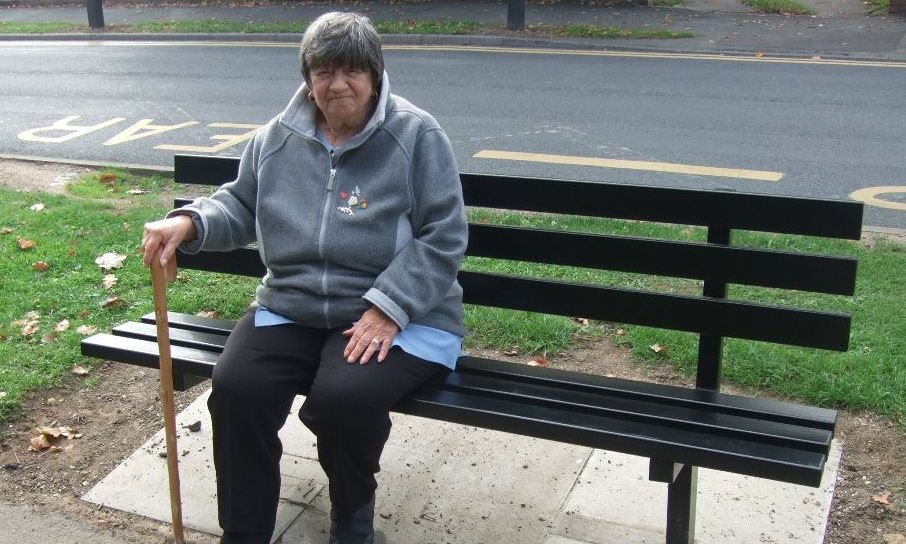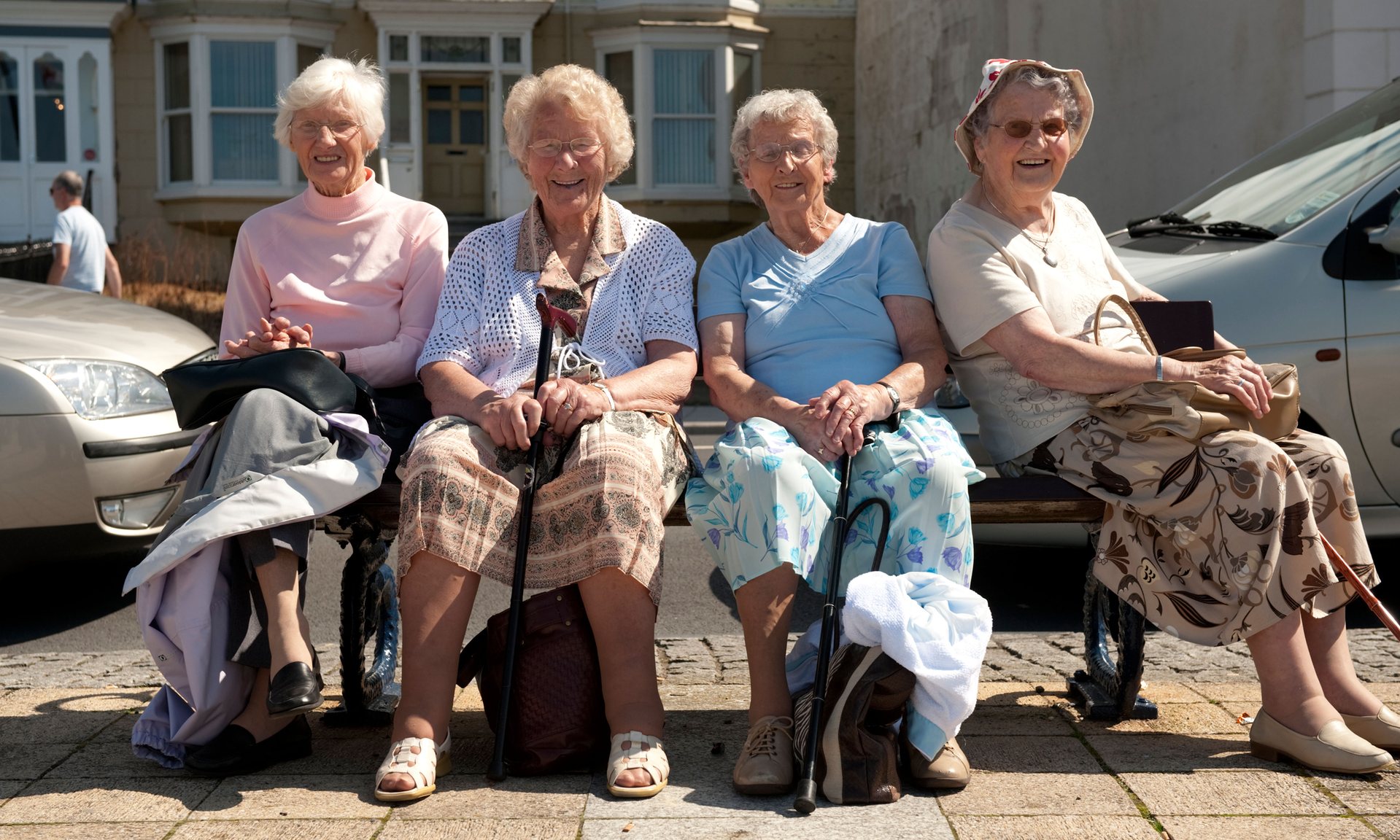From tackling isolation in Leicester to better footpaths in Dhaka, you shared your experiences of how cities could be improved for older generations.
As part of a series looking at ageing populations in cities, we asked you how cities could be improved for older generations. A recent report published by the mayor’s design advisory group in London advocated a more age-friendly city that improves the life of older people through better housing options, “lifetime neighbourhoods” and intergenerational support networks. There are initiatives and forums around the world dedicated to age-friendly cities – from New York to Leeds.
But we wanted to hear from you: whichever city you live in, how could it improve for older citizens? Many of you mentioned similar things: public benches, spacious and level pavements, efficient and affordable bus services, dropped kerbs, co-housing, public toilets and handrails. From Manchester to Dhaka, here are some of your experiences of the challenges and opportunities of growing older in your city and what could be done to improve daily life. Thanks to everyone who participated.
‘Create discreet aids in city infrastructure’
My main concern is not to be segregated by my age. I believe it’s important for all ages to interact on a day to day basis. It gives everyone a much richer and broader experience and hopefully removes the labelling of people as ‘elderly’ or ‘past it’ and the self-fulfilling behaviours that are often generated by this.
From our partners:
We need to ensure there are discreet/stylish physical aids included in the city infrastructure which assist not just older but all less agile people, including those with disabilities, and those with babies and small children. This might include additional seating, entrances which are easy to get in and out of, accessible and reliable transport that people want to use, more public toilets that are clean and safe, smoothing or highlighting trip hazards on paths and roads so that overall, people of all ages can have as safe, active and socially connected lifestyle as possible. (61-year-old Canberra resident)
‘Respect a walker’s right of way’
We need security and respect for people who walk. Specifically ensuring that drivers and cyclists respect a walker’s right of way. Keep cyclists off the sidewalks. Seattle has no walking culture, and does absolutely nothing for people, old or young, who choose not to drive or bike. Traffic-related anxiety discourages older people from leaving their homes, and getting the many benefits that come from walking. This fosters both poor health, and social isolation. Tolerance, patience, and acceptance of people as they are are needed. (66-year-old Seattle resident)
‘Good public transport is essential’
It is a question of mobility and isolation. My neighbourhood is purely residential: no convenient supermarkets and very poor public transport facilities. So transport is essential. I’m lucky enough to still drive, but without my own car I would almost be totally cut off. Here in Manchester there is an abundance of things to be involved with for all ages – but all this is dependent on the costs involved and the ability to get to the venue. So the city is inclusive if you have the money to pay for the facilities, and would be accessible if the transport arrangements were improved. (Alan, 70-year-old Manchester resident)

‘Neighbourhood schemes can tackle loneliness’
The challenges of city life as an older person include chronic health conditions exacerbated by poor air quality and poorly maintained public spaces. Also loneliness, if neighbours remain aloof because they view you to be old and not interested in the world. Cities need cross-generational activities and groupwork to break down barriers. People living alone of whatever age can become isolated, lonely and then mental health problems can develop. Good neighbourhood schemes would be an excellent start or re-inforcement of how communities can support and develop ‘good neighbourliness’ for everyone irrespective of age, background etc. (Leicester resident)
‘The city is better than the country’
I’d like to see reduced senior prices at restaurants, movies, museums, etc. as well as more public benches and buses which lower their entries for those who can’t manage higher steps. But overall, living in this city is soooooo much better than in the country or ‘burbs. (82-year-old New York City resident)
‘Teach young people we are not going to move over’
An age-friendly city makes it easy to move about by transit, or walking, without being hurried for fear of being run over by a car, or pushed over by a young person using a mobile. Reduce the number of cars. Slow them down. Give walking the first priority. Teach young people that we are not going to move over, nor do we have to. (77-year-old Toronto resident)
‘I consider myself more of a ‘recycled teenager’
Manchester, in my opinion, is the best age-friendly city in the world. It offers access to a multitude of opportunities. I have not experienced any challenges as an older person in the city, only opportunities. There are so many interesting and exciting things to do. As an older person my life has changed beyond all recognition since I became involved with The Royal Exchange Theatre. I joined a group called The Elders Company there and I now consider myself more of a ‘recycled teenager’. I feel as though I am riding a merry go round which I don’t want to get off. (Brenda Hickey, 71-year-old Manchester resident)

‘Cities need better footpaths and neighbourhood parks’
What makes an age-friendly city? Good footpaths, open space and parks, good air quality. My neighbourhood does nothing. As you get older in a city, life becomes lonely, everyone around you is busy. Getting outside of your home become more of a challenge. Cities need to make better footpaths and neighbourhood parks. Better public transportation systems as well. (64-year-old Dhaka resident)
‘Trams, toilets, policeman … and positivity’
I never think in terms of my age. I’ve tackled tough illnesses, but I’m lucky to have come through it all. Keeping active (if you can) is a responsibility we all have, so we are able to make full use of everything on offer (and there is a lot!).
The tram system here leaves a lot to be desired. Some faster trams from Rochdale would be good (it takes 55 minutes at least to Manchester, with no toilet and never enough seating). More public toilets too, for starters, and let’s have a few friendly policeman connecting with the public, making everyone feel a little safer. I grew up in Manchester and would like to think I will enjoy growing old in it too. I’m busier now than I’ve ever been, and it does take a supreme effort to put yourself out there, but we have a lot to say so let’s say it in a positive way not sit and moan about stuff between ourselves. (62-year-old Manchester resident)
‘Provide activities and meetings in order to fight social isolation’
In my opinion, an age-friendly city must pay particular attention to its senior citizens and regularly meet with them in order to know their needs and build in adequate structures. A city must provide activities and meetings in order to fight social isolation. In Angers, we are kept informed of activities and leisure thanks to a free local paper ‘Bords de Maine’.
There’s always the risk of being anonymous in a town whereas in a countryside village everybody knows each other. In town, isolation can become a problem: in a building, you don’t always know your neighbours, especially if you don’t participate in activities. However, the town offers more facilities than the countryside in terms of transportation, leisure and shopping. In my neighbourhood, there is a market twice a week, a supermarket and a tramway station nearby. Those elements came first in choice when I moved in.
Angers is a charming city, a sort of mix between country and town. However, some of the places are not suited for people with diminished mobility: there are not enough benches and there are poorly paved roads which can be a major inconvenience to us. I walk around Angers and use public transport all the time, but the amount of public transport could be increased. I would like to see more respect between all road users: cyclists are using the pavement because cars are parked on cycling lanes and it can be very annoying. I no longer use a car and use exclusively public transport. I live alone as a widower. (Roland C, 90-year-old Angers resident)
This feature originally appeared in The Guardian.
















